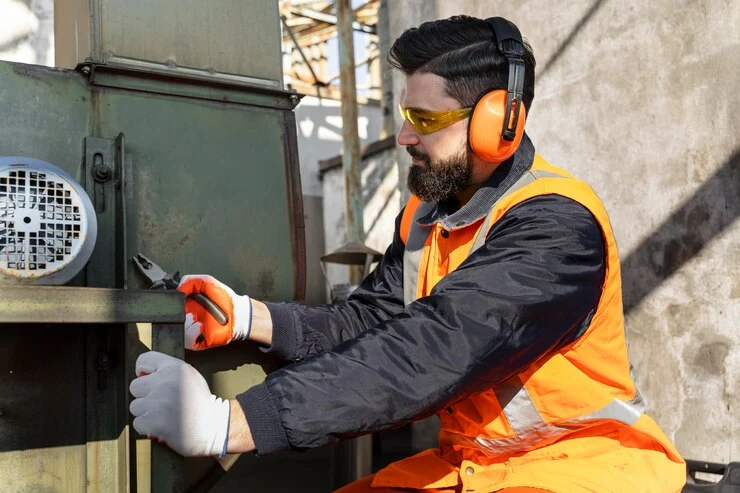Our Valued Clients
Process of water cooled chiller installation
Customized Designs
We specialise in customised chiller designs, allowing you to tailor your industrial cooling system to meet specific requirements. Our precision-engineered industrial water cooled chillers are designed for optimal performance, ensuring your systems run efficiently.
Professional Installation
Our professional installation services are your best choice for setting up water cooled chiller systems in your industrial space. Our skilled technicians install industrial water coolers with precision, ensuring that your water cooled industrial chiller functions efficiently, providing optimal cooling performance for your operations.
Energy-Efficiency Solutions
Enhance industrial operations with Ventac's chiller systems. Our energy-efficient solutions guarantee sustainable performance, cost savings, and environmentally conscious cooling tailored to your unique needs.
Regular Maintenance Plans
Our comprehensive maintenance plans ensure optimal performance and longevity for your water cooled chiller systems. Our expert team provides regular inspections, cleaning, lubrication, and performance monitoring, reducing downtime and enhancing efficiency for all your industrial water coolers.
Timely Upgrades
Stay ahead in industrial cooling with Ventac. Our timely upgrades ensure your chiller system evolves alongside technological advancements, guaranteeing sustained efficiency and optimal performance for your operations.
Emergency Repairs
Ventac responds swiftly to industrial chiller emergencies. Our dedicated team ensures prompt and efficient repairs, minimizing downtime and safeguarding your operations against unexpected disruptions.
Trusted water cooled industrial chiller Partner
Pre-Installation Consultation
Comprehensive Testing and Commissioning
Site Preparation and Equipment Delivery
Expert Installation and System Integration
Our Expertise
Ventac has established itself as a front-runner in water-cooled chiller installation services, consistently delivering exceptional results for businesses of all sizes. Our team of highly skilled and experienced technicians possesses a deep understanding of chiller technology and installation best practices. We are committed to providing our clients with the highest level of expertise, ensuring that their chiller systems operate at peak efficiency and reliability.
Why Installing A Water-Cooled Chiller Is a Great Decision
Choosing a water-cooled chiller for your industrial needs is a smart move with numerous benefits. These systems efficiently cool large spaces while beenvironmentally friendly. By opting for a water-cooled solution, you embrace energy efficiency, leading to long-term cost savings. The advanced technology in these
Additionally, water-cooled chillers contribute to a more sustainable future by reducing the overall environmental impact. Ventac's installations prioritize precision and reliability, providing tailored solutions to meet your specific requirements. Enjoy the peace of mind that comes with our 24/7 support, ensuring your chiller operates seamlessly, minimizing downtime and maximizing your business's productivity. Make the smart choice today with a water-cooled chiller for efficient, cost-effective, and reliable industrial cooling.

MOST ASKED QUESTION
When selecting a water-cooled chiller, consider your cooling capacity requirements, available space, noise tolerance, and budget. Our experts can guide you in choosing the ideal chiller for your specific needs.
With proper maintenance, a water-cooled chiller can last for 15-20 years or more.
Regular maintenance is essential for maximizing chiller performance. Our team offers comprehensive maintenance
Water-cooled systems offer superior energy efficiency and long-term cost savings compared to traditional methods.
Regular maintenance is recommended, typically quarterly, to ensure optimal performance and longevity
Yes, our team is equipped to provide swift and efficient emergency repairs to minimize downtime.
Absolutely, our experts customize installations to suit the specific needs of businesses, regardless of size.
Yes, we provide comprehensive support, including maintenance plans and timely upgrades.
























